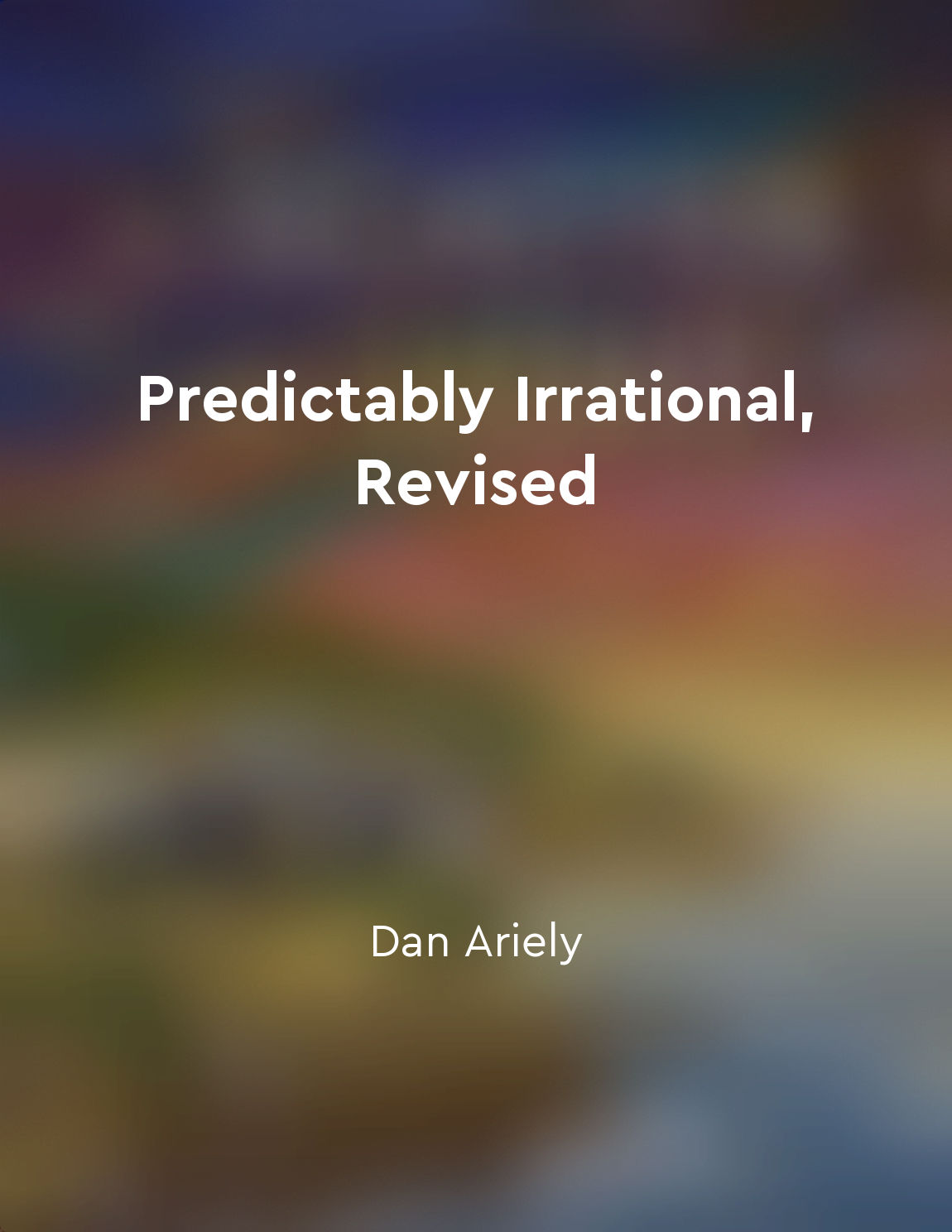Decisionmaking is illogical from "summary" of The Dilbert Principle by Scott Adams
The idea that decisionmaking is illogical is a fundamental truth that is often overlooked in the business world. When faced with choices, people are expected to carefully weigh the pros and cons of each option before making a rational decision. However, the reality is that human beings are not always rational creatures. In fact, more often than not, our decisions are influenced by a myriad of factors that have little to do with logic. One of the main reasons why decisionmaking is illogical is because humans are emotional beings. Emotions play a significant role in our thought processes, often clouding our judgment and leading us to make decisions based on how we feel rather than what makes the most sense. This can be particularly problematic in a business setting, where decisions should ideally be based on objective data and analysis. Another factor that contributes to the illogical nature of decisionmaking is cognitive bias. We all have preconceived notions and beliefs that influence the way we perceive information and make choices. These biases can lead us to overlook important facts or make snap judgments without fully considering all the relevant information. As a result, our decisions may not always be in our best interests or those of our organizations. Furthermore, decisionmaking is often influenced by external factors that are beyond our control. For example, office politics, personal relationships, and even random chance can all play a role in shaping the decisions we make. This can lead to outcomes that are unpredictable and sometimes irrational, making it difficult to truly understand why certain choices were made. In light of these challenges, it is important for businesses to recognize the inherent illogicality of decisionmaking and take steps to mitigate its impact. This may involve implementing processes and systems that help to minimize bias, promoting a culture of transparency and open communication, and encouraging employees to challenge their own assumptions and beliefs. By acknowledging the complexities of decisionmaking and actively working to address them, organizations can increase the likelihood of making more informed and rational choices.Similar Posts
Building strong relationships is vital for longterm success
Developing strong relationships with others is a fundamental aspect of achieving long-term success. This principle is highlight...
The external environment can significantly impact an organization's success
The success of an organization is not solely determined by its internal operations and strategies. The external environment in ...

Reflecting on past decisions can reveal cognitive biases
When we look back on past decisions we have made, we may uncover certain patterns or tendencies that influenced our choices. Th...

Negative emotions are necessary for growth and adaptation
Haidt argues that negative emotions play a crucial role in our personal growth and ability to adapt to the challenges of life. ...

We are easily influenced by authority figures
Think about a time when you found yourself in a situation where someone in a position of authority had a significant impact on ...
Constraints can be beneficial in decisionmaking
Constraints can offer a helpful framework for decision-making. When faced with an overwhelming array of choices, constraints ca...
Finding joy in the process leads to greater satisfaction
The idea that finding joy in the process leads to greater satisfaction is a fundamental concept that has been explored by many ...
They don't shy away from change
When faced with change, mentally strong individuals do not avoid it. Instead, they embrace it as an opportunity for growth and ...
Practice gratitude to maintain a positive outlook on work
Maintaining a positive outlook on work can sometimes be a challenge, especially when faced with stress or setbacks. One effecti...
Organizations must adapt to survive
In today's dynamic environment, organizations face constant changes and challenges that can have a significant impact on their ...
